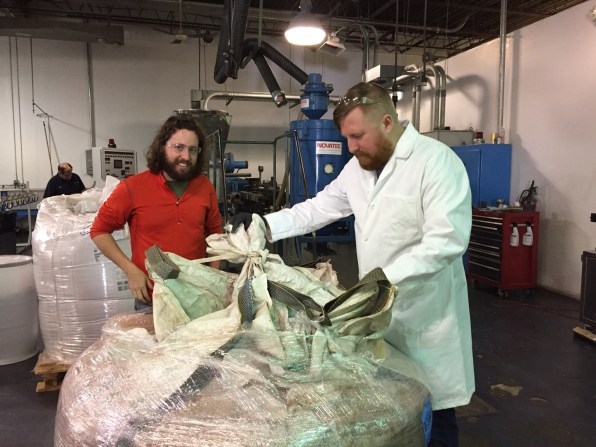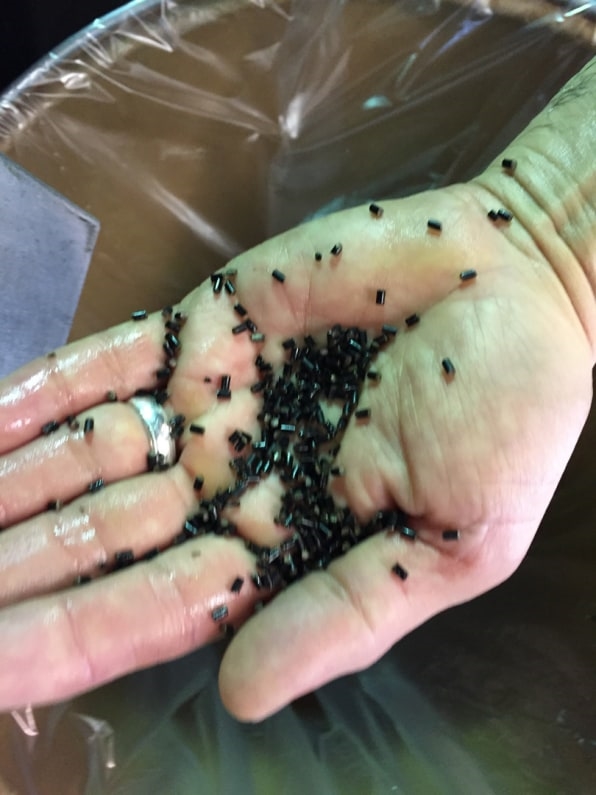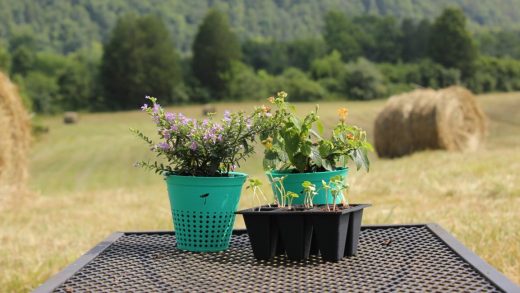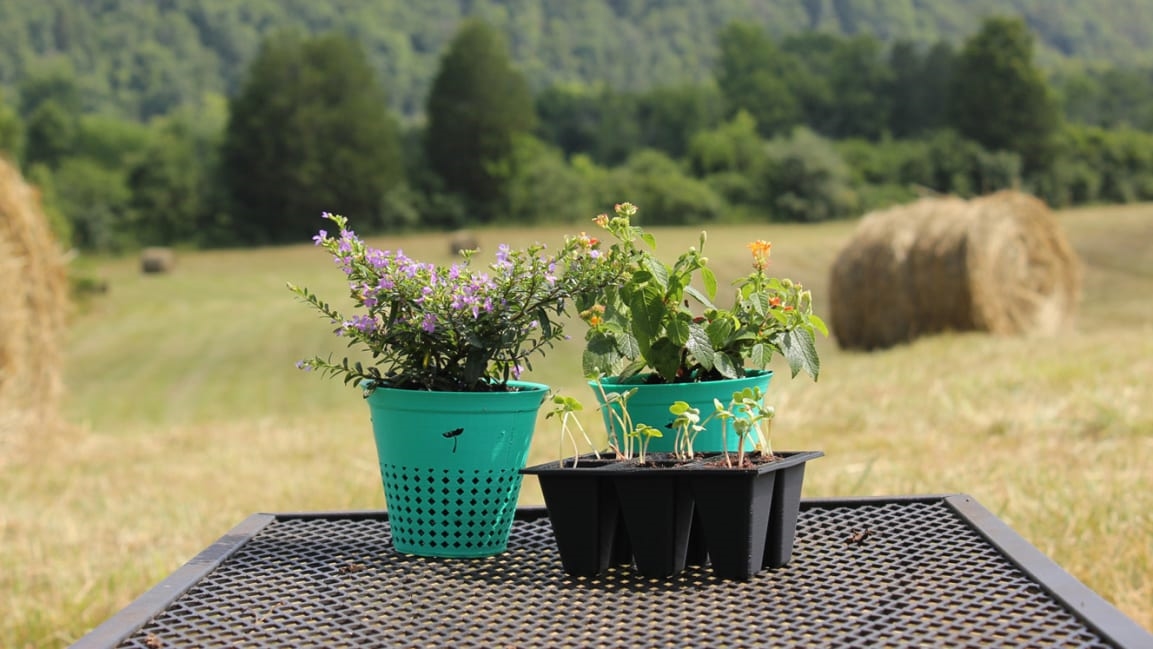You can just plant this biodegradable flower pot right in your backyard
Buy a plant or flowers and more often than not it will come in a pot made of black plastic that you’ll get rid of once you replant your new purchase. But that black plastic is incredibly hard to recycle, making the act of growing plants more wasteful than it should be. Now there’s a solution: If you bring flowers planted in this new type of pot home from a nursery, you’ll be able to plant everything—including the plastic pot—in your backyard. The material, which is in development now, is designed to slowly break down in the soil.
“We’re developing plastics that can biodegrade, which just means that different microorganisms in either soil or compost can consume them like food,” says Tony Bova, CEO and cofounder of Mobius, a company in the current cohort of the Techstars Sustainability Accelerator. The pot is the first application of the material. As the new design breaks down in your backyard, it adds carbon to the soil. Depending on the carbon footprint of shipping and the rest of the process, it could be “carbon negative,” helping fight climate change by sequestering more carbon than it creates.

The new bioplastic is made primarily from lignin, a waste product from the paper industry. In the past, paper mills often burned the material to create energy. But as the cost of other energy dropped and paper sales fell, the industry began to consider other ways to make use of the material. Bova began working with it in a lab at the University of Tennessee as a doctoral researcher. “Lignin itself is a polymer,” he says. “It’s similar to plastics that we’re familiar with now, except it’s naturally produced by a tree.”

[Photo: Mobius]
Unlike some other materials used to make plant-based plastic—like corn, which is sometimes used in biodegradable cups or forks—it doesn’t take up land or crops that could be used for food. “There’s a lot of opportunity to use any sort of organic matter to make new materials and chemicals,” Bova says. “But if it means that we have to find more land to grow more crops that could be used to feed people, or use up arable land, we’re kind of just trading one bad thing for another.” Using a material that’s otherwise waste avoids that problem.
The startup is currently optimizing the formula for the plastic and the final design of the pot; one challenge is ensuring that the pot doesn’t start to break down until it’s planted. In a recent manufacturing trial, Mobius produced several hundred pounds of the material, and it will soon begin a pilot with greenhouse growers that sell to a major plant retailer.
Future iterations of the product could include nutrients to help feed the plant, or biodegradable plastic sheets designed to replace the plastic “mulch” used in massive quantities on strawberry farms and other crops. Another potential product could be designed to slowly break down in soil, to replace polluting fertilizers. In the future, the company also plans to develop more products beyond plastic. “We want to be able to continue to develop new technologies that take waste and turn it into a valuable thing,” Bova says.
(16)



